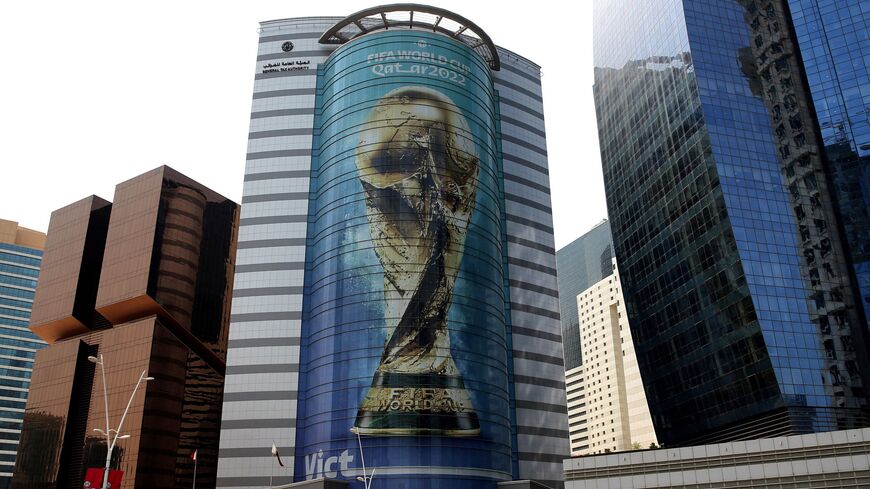Several NATO nations will contribute personnel, hardware and technology to keep the soccer tournament safe from drones and other threats, while also building Qatar’s own capabilities.

Qatar will host the 2022 FIFA World Cup in November and December, the first Arab nation to do so. It plans to welcome approximately 1.5 million fans, or nearly 50% of the country’s population, which will be both a logistical and safety challenge. Coordinating security from other countries is a vital part of staging the event, especially since the Gulf and the wider Middle East region have seen many drone attacks over the past year, as well as the usual threats of terrorism.
Doha is working to bolster its defense infrastructure while multiplying partnership agreements to secure additional help. This represents an opportunity not only to consolidate security ties with close allies but also to build new alliances. For World Cup security, Qatar has created a specific joint task force of Italian, French, British, American and Turkish security forces.
The largest risk is strikes from small, low-flying drones on the eight stadiums where games will be played. Drone technology has become more accessible and successfully weaponized by several non-state actors, including terrorist groups. Traditional counter-drone measures are not built to thwart cheaper, commercial unmanned aerial systems, and the crowded and public location of the stadiums is another complication.
In 2015, suicide bombers attempted to gain access to the Stade de France in Paris but failed. But drones can fly or loiter above a stadium while being guided some kilometers away. Also, since July 2018, approximately 100 drone attacks have been launched against commercial airports and military facilities across the Middle East and North Africa. Qatar borders Saudi Arabia and is close to both Yemen and Iran, which have all been challenged by recent drone attacks.
Counter-drones contributions to task force
To counter attacks before they happen, Qatar sought out the assistance of the United States, France and Italy. The American manufacturer Fortem Technologies agreed to provide its counter-unmanned aerial system, the DroneHunter F700. The DroneHunter fires nets to trap small targets, then carries them to a safer location. To tackle larger drones, it shoots a bigger net connected to a drogue or parachute, forcing the target into a slow landing and allowing for sufficient time to evacuate below. The company reports that the system has capture over 4,500 drones and that it can operate both alone and as a swarm. The rest of American support will be focused on port security and screening, counter-terrorism and risk management capabilities.
As well as providing police and army advisors, France will deploy its Bassalt anti-drone system, which detects approaching drones. While it was previously employed in other international events in France, this will be the first time it is used in the Middle East. In addition, Paris will be temporarily stationing one of its E-3F Airborne Warning and Control System planes, which uses a radar array capable of tracking over 600 targets.
Another counter-drone partner is Italy, which has been deepening its cooperation with Qatar. The Italian Air Force is deploying a Counter-Unmanned Aerial Anti-Drone Task group to further support the Qatari Armed Forces’ defense against both mini and micro UAVs.It will also contribute the ACUS portable jammer, which was previously used in a joint military exercise in 2021 in Qatar. Italian armed forces will be stationed in the country during the World Cup.
Additional assistance
The UK will defend Qatar’s airspace during the World Cup by deploying Eurofighter Typhoon fighters. These aircraft will be part of a quick reaction alert force along with personnel from the Qatari Emirati Air Force trained in Britain.
And for the first time ever, NATO will provide support to a non-NATO country. The defense alliance stated that Czech and Slovakian personnel will train Qatari security forces in chemical, biological and nuclear threats. Earlier this year, Qatar gained the status of Major Non-NATO Ally to the US, which offers several security collaboration advantages not typically available to non-NATO states.
Turkey will send a total of 3,250 security forces to Qatar, including riot police, special forces and bomb detection experts and dogs. It will also supply anti-chemical, biological and nuclear personnel.
Qatar’s turn on the world stage does not only carry important social-cultural underpinning. All the joint security efforts will strengthen interoperability as well as share best practices between the Qatari armed forces and participating countries.
